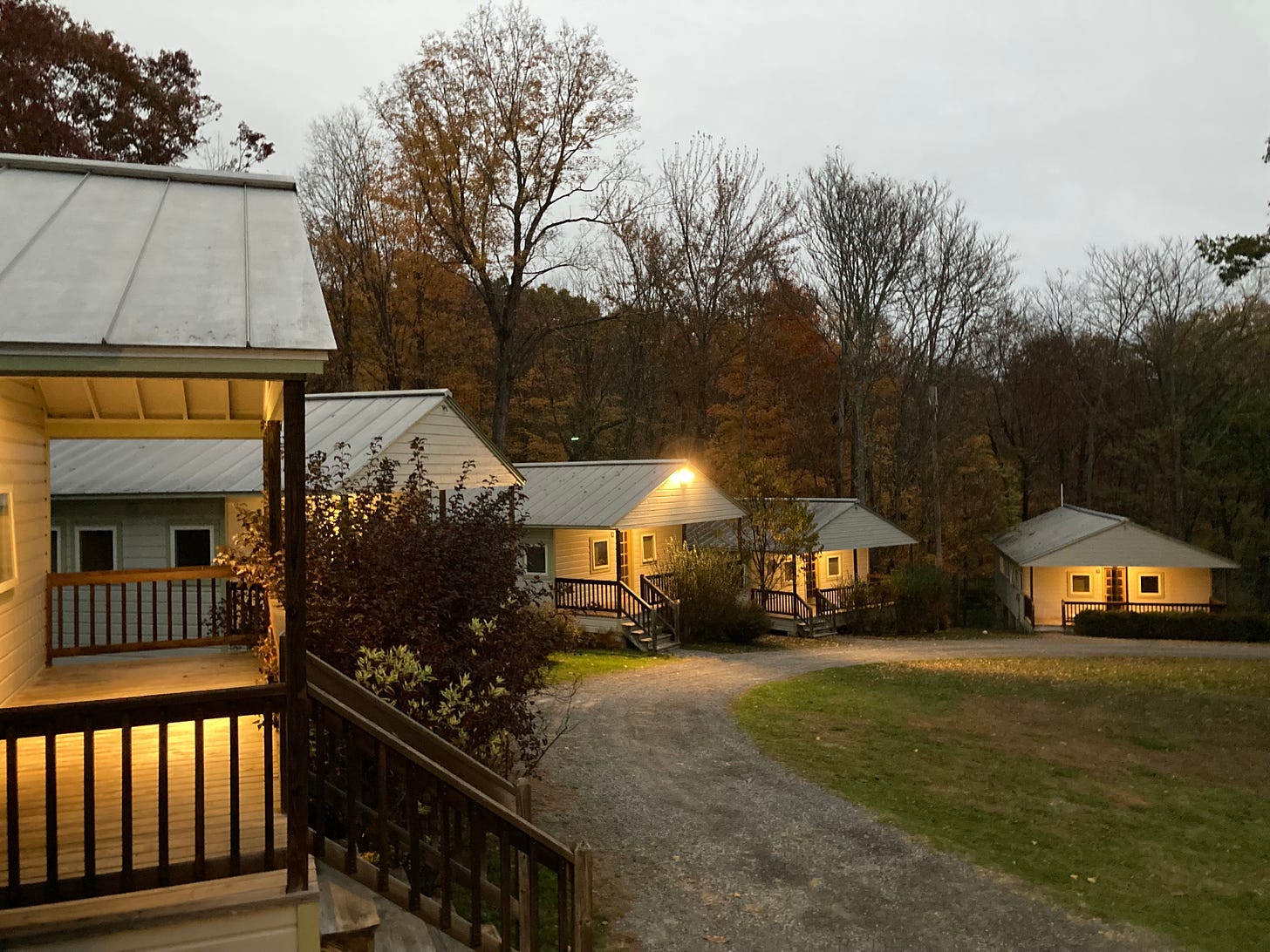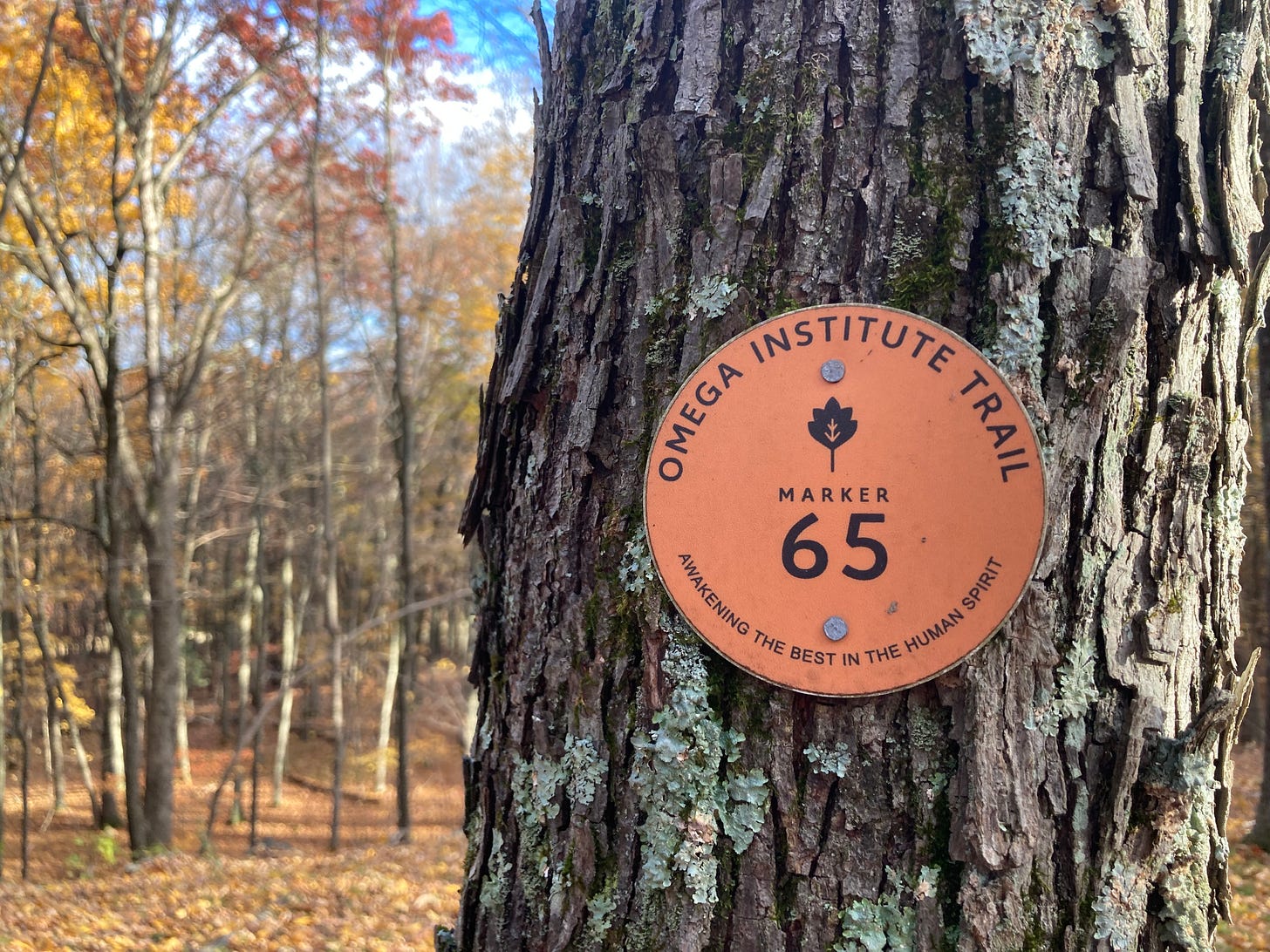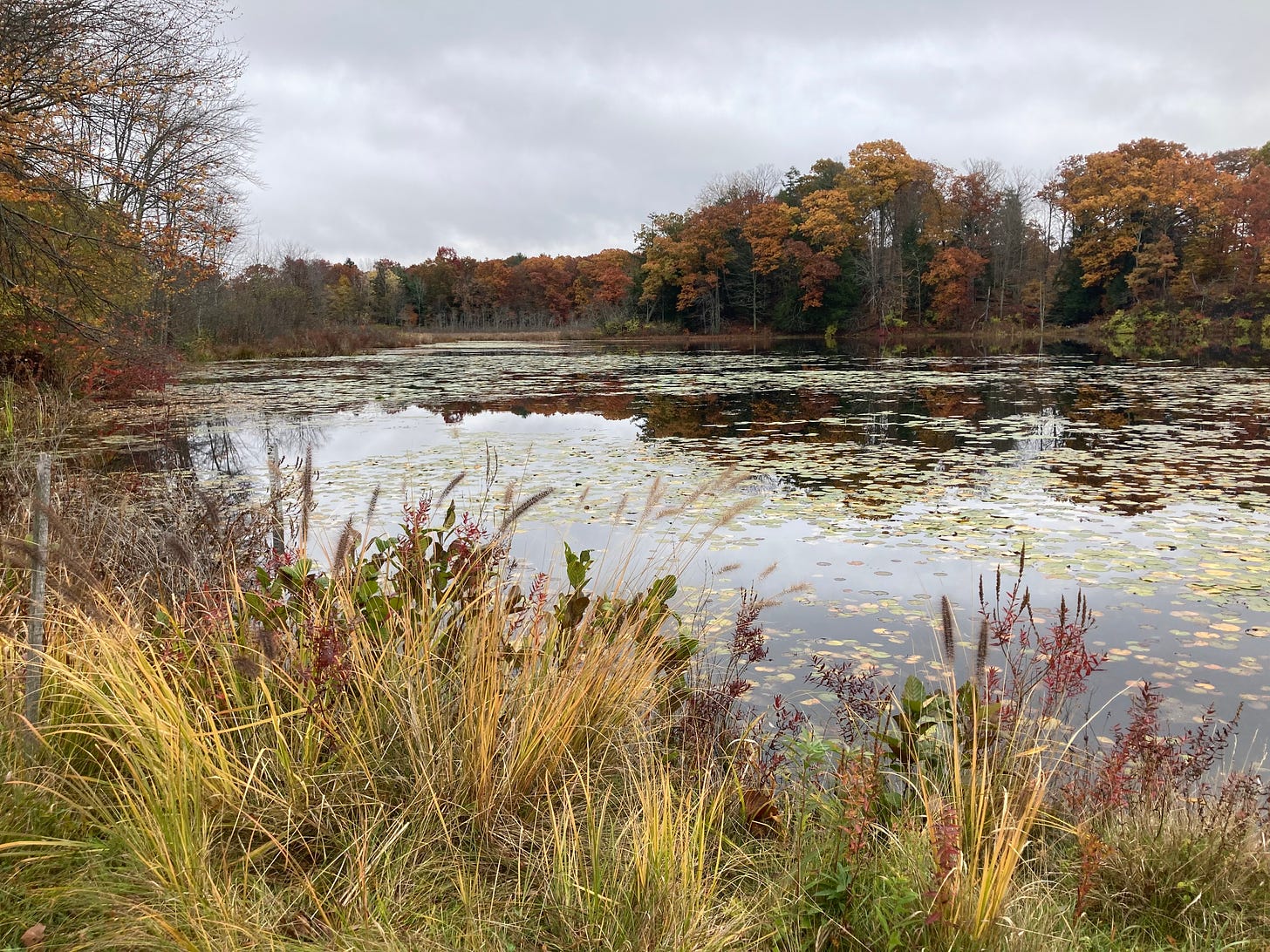The ways we get through
"Even he was stumped by the way the fading light made old pathways seem unfamiliar..."
Dear friends,
Hallo to you as October ends. I’ve just finished a week of retreat at the Omega centre in Rhinebeck, NY; a week where 100 of us looked at poems, and talked together about how a poem can open up a world … as well as taking lots of time for writing poetry, to open up our own worlds with form, innovation, a little bit of anarchy, experiment, risk, desire, and both sharing and privacy.
Here’s the thing, though: you already know this. In small moments of free time during the week, I read through your comments on last week’s prompt. (I’d asked what it was that you wished to see through new eyes.) You asked questions and you shared responses. You responded to responses. The bravery of a question was met with the generosity of response, and the generosity of response was further met by responses of courtesy.
The Poetry Unbound episodes from this week — Saddiq Dzukogi’s “Learning about Constellations” and Fiona Benson’s “Mama Cockroach, I Love You” — are, in a way, continued demonstrations of how it is that a poem seeks to take a look at what at first might seem unbearable, and then looks again, and again.
During the retreat last week, I took a few walks. One afternoon, Sean, a man I’ve met and kept in touch with from other events, asked if I wanted to go on a hike. Yes. The pathway was covered with gorgeous autumn coloured leaves. Sean knows those pathways well, though, so — mostly — we were able to find the way. But even he was stumped by the way the fading light made old pathways seem unfamiliar. I trusted him, as he laughed at himself when he felt wrong-wayed. I liked his guidance that even though he didn’t know the way, he knew a general direction. We made it back.
I spent years of my life looking for the way, thinking I might find it in some small section of religion. Or, when that faded, thinking I might find it in some small particular practice. The desire wasn’t the problem, the imagination was. The imagination that there was only one way. What I see, over and over, is that the way is made: with failure, friendship, desire, thwarted desire, achievement, limitation, justice, reparation, the long ache of wound, art, ambivalence, and amazement. There is no, the way. There are just the ways we get through. For me, poetry is a guide, because the best poetry isn’t prescriptive; rather, it too is just trying to find a way.
The invitation today is simply this — and it is a continuation of questions asked in previous weeks — tell us one short story about someone who has been a guide to you.
I mentioned Sean above. It wasn’t just his skill; it was his skill when he himself was a little disoriented that made him so trustable when the way wasn’t clear. So who has guided you? Tell us one short story about them. Such small narrative poems are opportunities for praise.
With thanks for the conversation — I read and re-read what you write in these comments and am deeply moved.
Pádraig
Upcoming events in November …
This Wednesday, Nov. 2nd, I’ll be giving a lecture on poetry and conflict at Rockhurst University in Kansas City, MO. Starts at 7:30pm. If you’re in the area, get your tickets (free) here.
I’ll be in Calgary, Canada next weekend, for two nights of reflection on the Poetry Unbound book and podcast, and of poetry’s power to move and connect us. Join me at Central Library (Patricia A. Whelan Performance Hall) on Friday, Nov. 4th at 7pm (free tickets here) or Sunday, Nov. 6th at 7pm (free tickets here).
Later in November, I’ll be in Oxford, England giving a lecture, “The Event of a Poem,” at Keble College (Pusey Room). Thursday, Nov. 17th, 6pm. Find more information here. No registration required, just turn up.






I bring her some food I made, and she shares how much she loves it.
She eats enthusiastically, with noise and abandon.
She thanks those who help her with even the most personal of cares, most genuinely.
We admire the flowers her friends have brought her, and she begins to weep in gratitude for her friends who continue to visit her, even when she is staying confined to a room.
She glows at the photographs of her family.
Mary V is teaching me how to die while I knit at the side of her bed.
Karen E
Schwinn
by George Bilgere
One day my mother astonished me
by getting astride my bike,
the heavy old balloon-tired Schwinn
I used for my afternoon paper route,
and pedaling away down the street,
skirt flying, hair blown back,
a girl again in the wind and speed
that had nothing to do
with pulling double shifts at the hospital,
or cooking meatloaf, or sewing up my jeans,
the old bike carrying her away
from my father dead of booze,
and her own nightly bottle
of red wine in front of the news.
She flew down the road so far
I could barely see her,
then slowly pedaled back to me,
and stepped off the bike, my mom again.
“Schwinn” by George Bilgere from Blood Pages. University of Pittsburgh Press © 2018.
This poem gave me fresh eyes on my relationship with my mother. I felt that the poet gave me permission to let my mother be an individual. Simple, but took 67 years to get to.